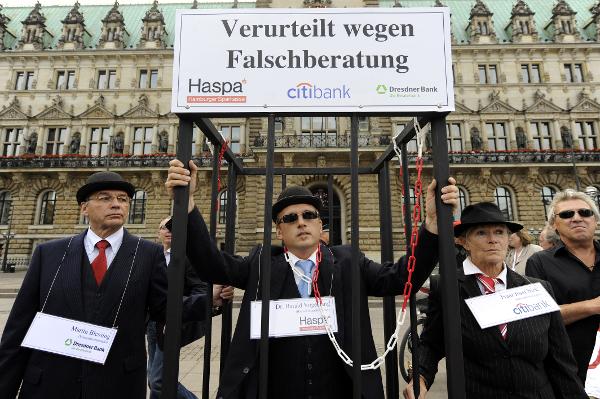Source

Source: picture-alliance/dpa (c) dpa
German bank customers were among those affected when the American investment bank Lehman Brothers declared bankruptcy on September 15, 2008. Several German financial firms, including Citibank Germany, Dresdner Bank, and the Hamburg savings bank Haspa, had sold Lehman Zertifikate (akin to exchange-traded notes) to around 40,000 customers. When Lehman Brothers went bankrupt, these Zertifikate became practically worthless, causing losses of almost 700 million Euro. In the case of Haspa alone, 3,700 private investors lost 54 million Euro. Claiming that they had received insufficient information about the Zertifikate and the associated risks, many of the affected customers demanded that the transactions be declared null and void. In February 2009, Haspa reached an agreement with about 1,000 customers, paying out a total of 9.5 million Euro in damages. In the ensuing period, however, the bank had to fend off numerous individual claims in court. Dresdner Bank, which did not offer its customers a goodwill settlement, faced the same difficulties. In late May 2009, Citibank reached an agreement with the consumer protection agency of North Rhine-Westphalia and paid a 27 million Euro settlement, which covered 50 percent of the losses of one-quarter of its affected customers.
This photo, taken in front of Hamburg city hall on the one-year anniversary of the Lehman Brothers bankruptcy, shows affected customers demonstrating against Haspa, Dresdner Bank, and Citibank, as well as their CEOs Harald Vogelsang, Martin Blessing, and Franz Josef Nick. Their sign reads “Convicted for bad advice.”

Source: picture-alliance/dpa (c) dpa